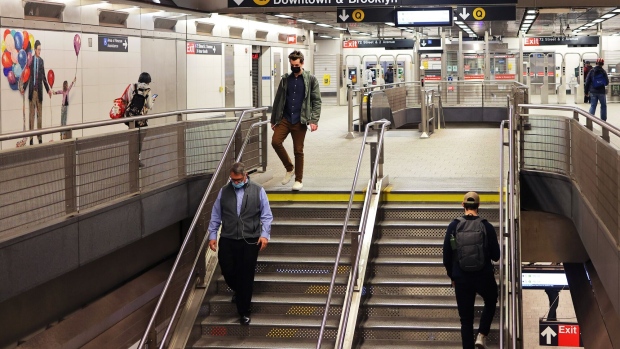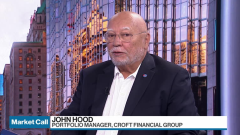Jun 18, 2024
NYC Stops Work to Expand Second Avenue Subway After Congestion Pricing Halted
, Bloomberg News

(Bloomberg) -- Construction work on extending New York City’s Second Avenue subway to Harlem is on hold after Governor Kathy Hochul’s decision to indefinitely pause a congestion pricing plan leaves the nation’s largest transit system without the funds to pay for such infrastructure projects.
The Metropolitan Transportation Authority, which oversees the city’s subways, buses and commuter rail lines, instructed C.A.C. Industries, Inc. to stop its work of relocating underground utilities along Second Avenue that would make way for future construction, Jamie Torres-Springer, head of MTA’s Construction & Development, told reporters on Tuesday during a press conference. It is the first component of the Second Avenue extension project, which will link the Q subway line from 96th Street on the Upper East Side to 125th Street.
MTA officials have warned that without new revenue from congestion pricing, which would charge motorists driving into Manhattan’s central business district, it will need to postpone some capital projects, including the Second Avenue extension.
“They were about to begin tearing up Second Avenue to relocate utilities and we’ve stopped them from doing work on that,” Torres-Springer said.
Hochul on June 5 abruptly halted the congestion pricing initiative, which was set to begin June 30, saying small businesses and working-class families were already struggling with inflation. That left the MTA’s current capital budget with a $15 billion shortfall. The transit agency needs the funds to modernize a more than 100-year-old transit system and improve service.
It also puts the MTA at risk of losing $3.4 billion of federal funding tied to the $7.7 billion Second Avenue subway project because the transit agency must invest more than $4 billion in order to receive the federal money.
MTA officials are now working to slash the MTA’s $51.5 billion 2020 —2024 capital plan to fix the $15 billion deficit. Updating subway signals to reduce train delays, purchasing electric buses and making more stations accessible — along with the Second Avenue subway project — are all at risk of being shelved.
“We’re focused on ensuring that we can keep the system in a state of good repair, which means the bulk of our remaining funds has to be prioritized for state of good repair,” Torres-Springer said.
MTA staff is set to brief the agency’s board next week at its monthly meeting on which infrastructure projects need to be postponed to direct money toward construction work that keeps the system operating efficiently and maintains service.
Transit and disability advocates and environmental groups have pushed back against Hochul’s decision to temporarily pause congestion pricing. New York City Comptroller Brad Lander last week accused the governor of violating state law in her decision. Lander is considering legal action if Hochul fails to reinstate the congestion pricing plan.
©2024 Bloomberg L.P.






